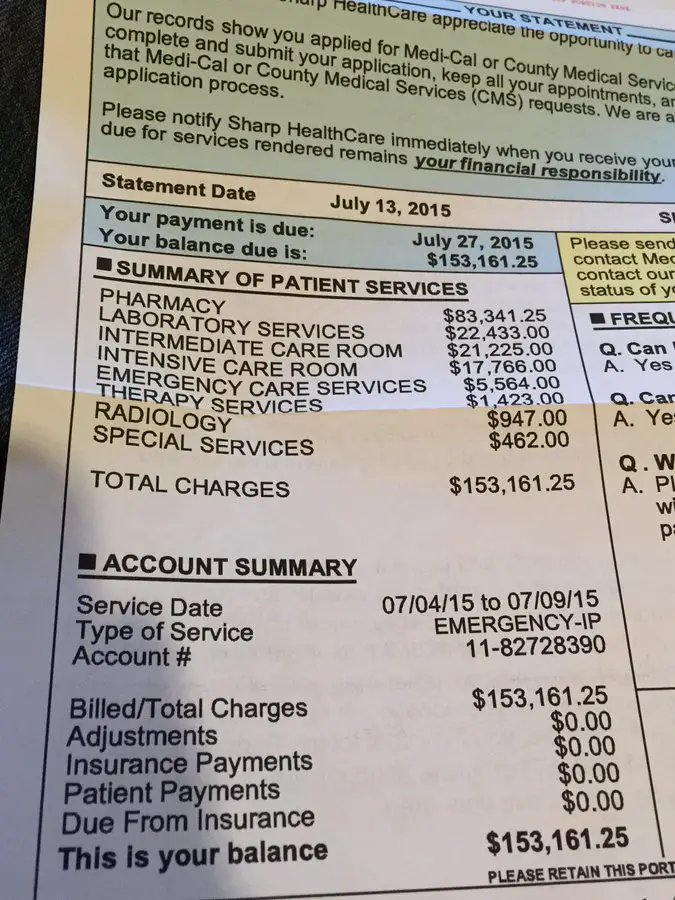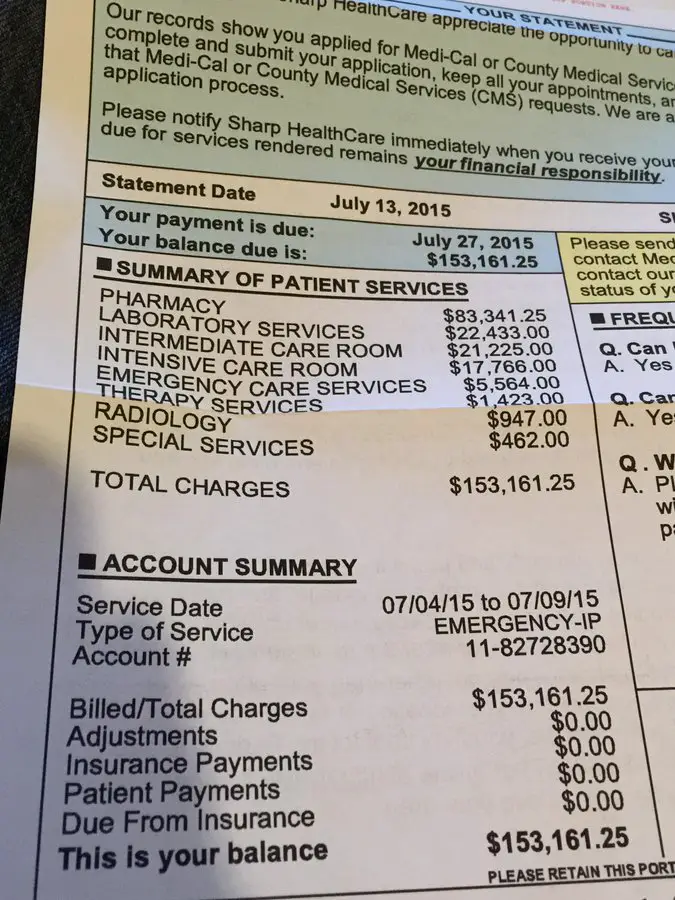Rattlesnakes are a common sight in many parts of the world, and while they are generally shy and prefer to avoid humans, they can be dangerous when provoked. One of the most serious risks associated with rattlesnakes is their venom, which can cause a range of symptoms and can even be fatal if left untreated.
But just how much does it cost to treat a rattlesnake bite? The answer depends on a range of factors, from the severity of the bite to the location of the hospital, and it’s important for anyone living in rattlesnake country to be aware of the potential costs associated with this type of injury.
Treating a rattlesnake bite can cost anywhere from $8,000 to $20,000 depending on the severity of the bite and the treatment required. This includes the cost of antivenom, hospitalization, and any additional medications or procedures needed. It is important to seek medical attention immediately if you suspect a rattlesnake bite as delaying treatment can lead to serious complications.

How Much Does It Cost to Treat a Rattlesnake Bite?
Rattlesnakes are venomous snakes that are found throughout North and South America. If you or someone you know is bitten by a rattlesnake, it is important to seek medical attention immediately. But how much does it cost to treat a rattlesnake bite? In this article, we will explore the various costs associated with treating a rattlesnake bite.
Emergency Room Visit
The first cost associated with treating a rattlesnake bite is the emergency room visit. This can cost anywhere from $500 to $2,000 depending on the hospital and the severity of the bite. The emergency room visit will include an examination by a doctor, blood tests, and potentially an antivenom treatment.
If the patient requires an antivenom treatment, the cost can be significant. The price of antivenom can vary depending on the type of snake and the location of the hospital. The cost of a single vial of antivenom can range from $2,500 to $4,000. Patients may require multiple vials of antivenom, which can significantly increase the cost of treatment.
Hospital Stay
In some cases, patients may require a hospital stay after being bitten by a rattlesnake. This can add to the overall cost of treatment. The cost of a hospital stay can vary depending on the length of the stay and the location of the hospital. On average, a one-night stay in the hospital can cost around $5,000.
During the hospital stay, the patient may require additional treatments such as pain medication, antibiotics, and physical therapy. These treatments can add to the overall cost of treatment.
Rehabilitation and Follow-Up Care
After being bitten by a rattlesnake, patients may require rehabilitation and follow-up care. This can include physical therapy to regain strength and mobility in the affected limb, as well as follow-up appointments with a doctor to monitor the healing process.
The cost of rehabilitation and follow-up care can vary depending on the severity of the bite and the location of the hospital. On average, rehabilitation and follow-up care can cost around $1,000 to $5,000.
Benefits of Medical Insurance
Having medical insurance can significantly reduce the cost of treating a rattlesnake bite. Most insurance plans will cover emergency room visits, hospital stays, and rehabilitation and follow-up care. However, the cost of antivenom can vary depending on the insurance plan.
It is important to check with your insurance provider to understand what is covered and what is not covered in the event of a rattlesnake bite.
Rattlesnake Bite vs. Other Snake Bites
The cost of treating a rattlesnake bite can vary compared to other snake bites. Rattlesnake bites are typically more expensive to treat due to the cost of antivenom. However, the overall cost of treatment can vary depending on the severity of the bite and the location of the hospital.
In comparison, other snake bites such as coral snake bites can be less expensive to treat. Coral snake antivenom is less expensive than rattlesnake antivenom, which can significantly reduce the overall cost of treatment.
Preventing Rattlesnake Bites
Preventing rattlesnake bites can help reduce the overall cost of treatment. Here are a few tips to prevent rattlesnake bites:
– Wear protective clothing such as long pants and boots when hiking or working outdoors
– Avoid walking in tall grass or rocky areas where snakes may be hiding
– Use a flashlight if walking at night to avoid stepping on snakes
– Keep your yard clean and free of debris to reduce snake habitat
Taking these preventative measures can help reduce the likelihood of a rattlesnake bite and the associated costs of treatment.
Conclusion
Treating a rattlesnake bite can be expensive, but it is important to seek medical attention immediately. The cost of treatment can vary depending on the severity of the bite and the location of the hospital. Having medical insurance can significantly reduce the cost of treatment. Taking preventative measures to avoid rattlesnake bites can also help reduce the overall cost of treatment.
Frequently Asked Questions
What are the symptoms of a rattlesnake bite?
The symptoms of a rattlesnake bite can vary depending on the species of the snake and the amount of venom injected. Common symptoms include pain and swelling at the bite site, bruising, blisters, nausea, vomiting, sweating, and rapid pulse. In severe cases, the victim may experience difficulty breathing, bleeding, or organ failure. It is important to seek medical attention immediately if you suspect you have been bitten by a rattlesnake.
How is a rattlesnake bite treated?
Initial treatment for a rattlesnake bite involves immobilizing the affected limb and keeping the victim calm and still. The victim will be transported to a hospital for further treatment, which may include anti-venom medication, pain medication, and intravenous fluids. In severe cases, the victim may require surgery to remove damaged tissue or repair organ damage. The cost of treatment can vary depending on the severity of the bite and the type of medical care required.
Can I treat a rattlesnake bite at home?
No, it is not recommended to treat a rattlesnake bite at home. Rattlesnake venom can cause serious medical complications and should be treated by a medical professional as soon as possible. Attempting to treat the bite at home can lead to further complications and delay proper medical treatment. It is important to seek emergency medical attention if you suspect you have been bitten by a rattlesnake.
Does insurance cover the cost of treating a rattlesnake bite?
Many health insurance plans will cover the cost of treating a rattlesnake bite, but it is important to check with your insurance provider to confirm coverage. Some plans may require pre-authorization for certain treatments or may have a cap on the amount of coverage provided. If you do not have health insurance, you may be responsible for paying the full cost of treatment out of pocket.
How much does it cost to receive anti-venom medication for a rattlesnake bite?
The cost of anti-venom medication for a rattlesnake bite can vary depending on the specific type of medication and the amount required. In general, the cost of anti-venom medication can range from several hundred to several thousand dollars per dose. The total cost of treatment for a rattlesnake bite can also include additional medical expenses, such as hospitalization, diagnostic tests, and follow-up care.
When Snakes Bite: Pre-Hospital Care
In conclusion, treating a rattlesnake bite can be a costly affair. However, the cost varies depending on several factors such as the severity of the bite, the location of the bite, and the type of treatment required. It is essential to seek medical attention immediately after being bitten by a rattlesnake to avoid complications that can result in higher medical costs.
While the cost can be a significant factor to consider, it should not be a reason to delay seeking medical attention. Delaying treatment can result in severe complications and even death. It is essential to take precautions when in areas prone to rattlesnakes, such as wearing protective clothing and carrying a snakebite kit.
Lastly, it is crucial to have adequate insurance coverage that includes emergency medical care to avoid high out-of-pocket costs. Being prepared and taking necessary precautions can help reduce the cost of treating a rattlesnake bite and ensure a speedy recovery. Remember, prevention is always better than cure.


